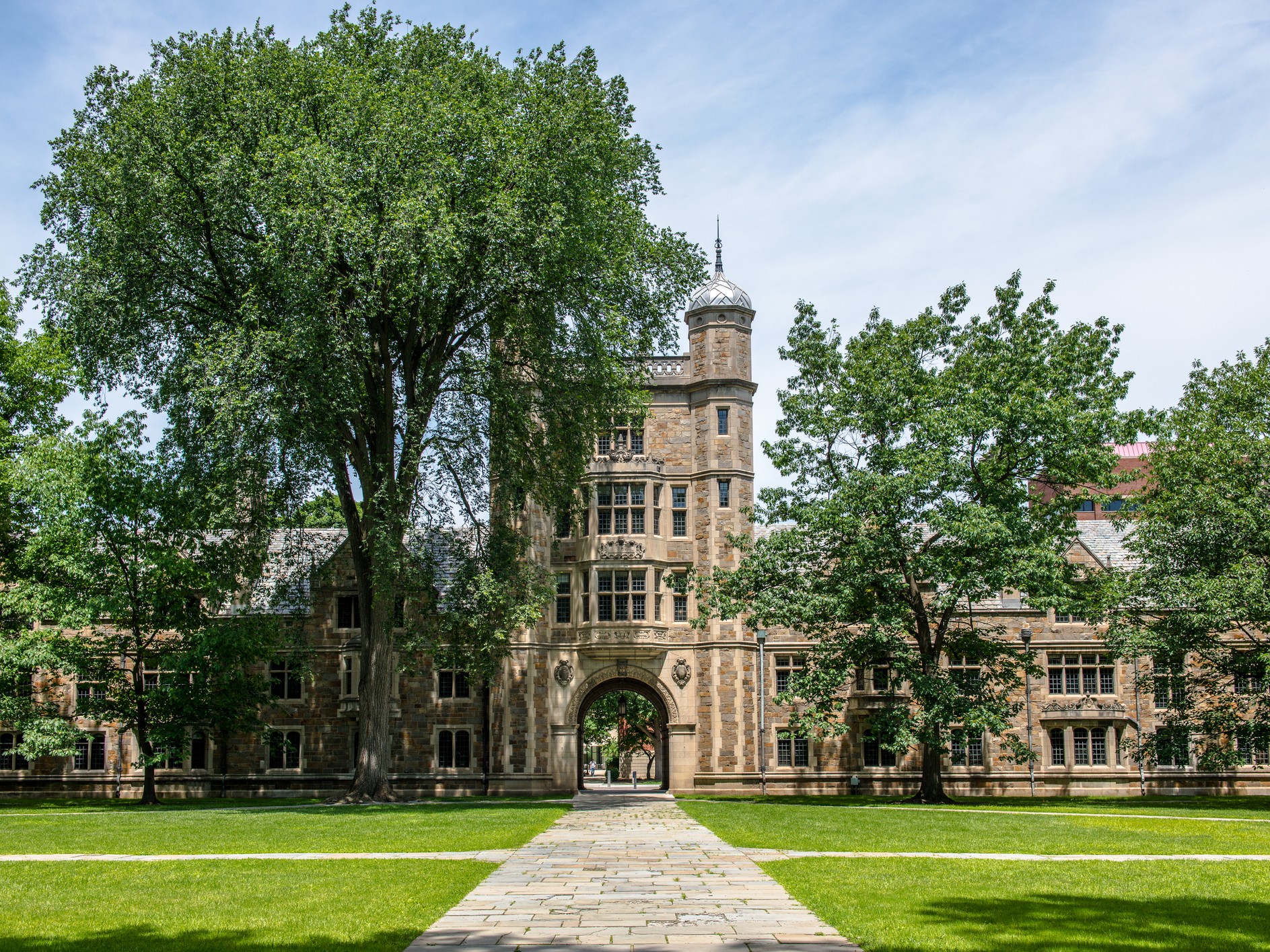As Ivy League prestige falters under political pressure and employer skepticism, the University of Michigan rises as a top-tier contender with real-world results and Midwestern grit.
Photo: The University of Michigan Law Quadrangle. Photo by tiny al
The tides of elite education are shifting. Amid growing skepticism toward the traditional Ivy League institutions, the University of Michigan-Ann Arbor has emerged as one of Forbes’ “New Ivies” for 2025.
According to Forbes, as federal scrutiny and political pressure mount under the Trump administration, elite universities—particularly the Ivy League—face steep funding cuts, gutted programs, and ongoing investigations. The University of Pennsylvania recently saw $175 million in funding frozen, while Columbia University lost $400 million amid claims it failed to address antisemitism and campus unrest. At the same time, employers are growing disenchanted with Ivy League graduates: in a Forbes survey of over 380 business leaders, 37% said they are less likely to hire an Ivy League graduate than five years ago, and 12% said they would never do so, citing arrogance and a lack of humility as major concerns.
As public confidence wanes in the exclusivity of older private universities, schools like Michigan are being praised for producing top-tier graduates while maintaining accessibility and robust public missions.
Michigan: A “Public Ivy” Since JFK’s Time
The idea of the University of Michigan being an Ivy League institution isn’t new. In an impromptu 1960 speech at the Michigan Union, then-Senator John F. Kennedy famously opened with, “I want to express my thanks to you, as a graduate of the Michigan of the East, Harvard University.”
The crowd of 10,000 or so students roared their approval, and the remark has been on U-M garb and swag ever since. Nonetheless, Kennedy’s words proved prophetic. Today, U-M consistently ranks among the world’s top universities, blending affordability (for in-state students) with academic rigor, global research impact, and a powerful alumni network.
Elite by Every Metric
According to the new Forbes list, the University of Michigan boasts an undergraduate enrollment of 33,921, an 18% acceptance rate, a median SAT score of 1470, and a median ACT score of 33—figures that rival or exceed many Ivy League schools today.
The University of Michigan continues to demonstrate strong outcomes for its graduates across various programs. For instance, the School of Information’s Bachelor of Science in Information (BSI) program reported a 98% employment rate for its 2023 graduates, with an average starting salary of $90,000. Top employers included Deloitte, Accenture, and Capital One, and graduates found positions in industries such as consulting (35%), financial services (22%), and technology (18%).
Similarly, the Master of Applied Data Science (MADS) program reported an average salary of $107,000 for its 2023 graduates, with 45% securing jobs in the data science field and 12% achieving promotions or advancements within their organizations.
The Ross School of Business’s Full-Time MBA program also showcased impressive results, with 91% of the Class of 2024 receiving job offers within six months of graduation. The median salary was $170,000, accompanied by a median signing bonus of $30,000. Consulting firms such as McKinsey & Co., Boston Consulting Group, and Bain & Co. were among the top employers.
The Michigan Difference
“C-suite” refers to the highest-ranking executive positions within a company—the “chief” roles – CEO, CFO, COO, CTO, and the like.
Many C-suite executives told Forbes they are less likely to hire Ivy League graduates due to perceived entitlement, Michigan students are standing out for their work ethic and “Midwestern modesty.”
SOURCES:
- Forbes, “The New Ivies: 2025”
- John F. Kennedy, Speech at Michigan Union (1960)
- U-M 2024 Employment Report Bachelor of Science in Information
- U-M 2024 Employment Report Master of Applied Data Science
- U-M 2024 Employment Data for Full-Time MBA






 8123 Main St Suite 200 Dexter, MI 48130
8123 Main St Suite 200 Dexter, MI 48130


